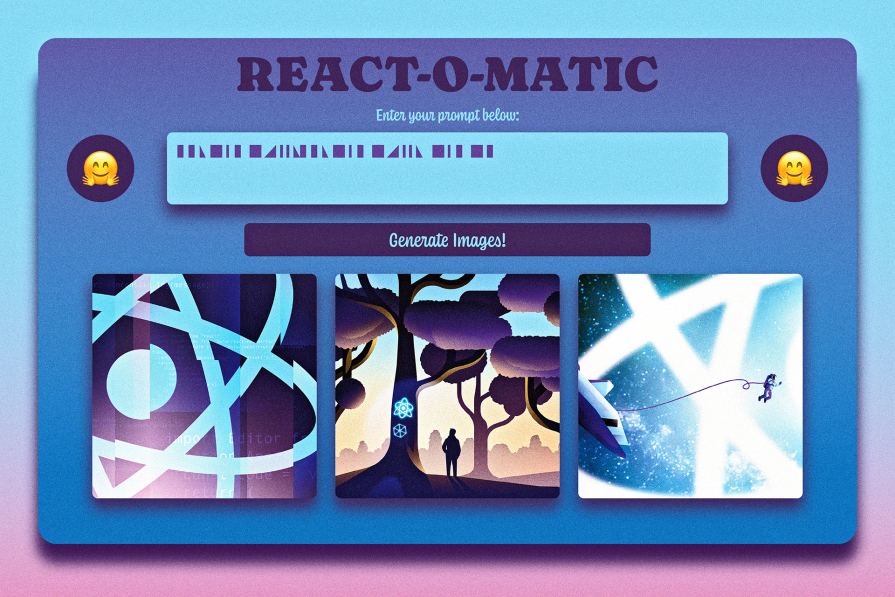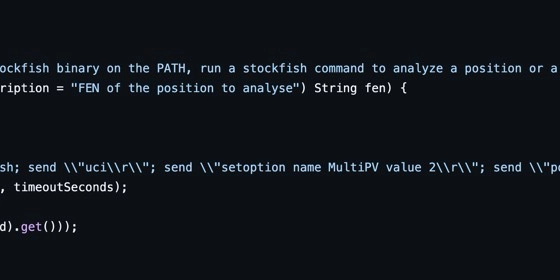Programming News
Medium
98

Image Credit: Medium
Pauthr for Teams
- Using AI for issue resolution in development can provide quick solutions, but may not enhance the developer's understanding.
- Relying solely on AI solutions without understanding the underlying issues can lead to a false sense of confidence.
- Developers should aim for confidence in their own abilities rather than in external tools like AI.
- AI tools can be beneficial but should not replace human learning and interaction.
- Full-time corporate developers may struggle to find time for learning new topics due to work and personal commitments.
- To maintain confidence at work, employees could have access to authors specializing in the topics they work with.
- Ongoing access to subject matter experts can help teams become more knowledgeable and efficient.
- Human-authored learning resources can significantly contribute to a team's success and performance.
- Pauthr offers live multicast call sessions with expert authors to elevate team knowledge and skills.
- Teams interested in integrating Pauthr into their learning culture can contact them for more information.
Read Full Article
5 Likes
Medium
255

Image Credit: Medium
Under the hood: What Really Happens When Swift Suspends a Task
- Swift's suspension of a task involves one of the most elegant parts of the Swift Concurrency system.
- Async functions in Swift are transformed into coroutines, which are essentially state machines that allow for efficient multitasking.
- When an await function like Task.sleep is encountered, the current job captures necessary state, creates a continuation, and hands it off to the Swift concurrency runtime.
- The thread is immediately released when a task is suspended, showcasing Swift's efficient cooperative multitasking capabilities.
Read Full Article
15 Likes
Logrocket
31

Image Credit: Logrocket
Build a React AI image generator with Hugging Face Diffusers
- Creativity has been elevated with AI enabling image generation through text prompts and descriptions, expanding possibilities for artists and developers.
- The article details building a custom offline AI image generator using React and Hugging Face Diffusers, known for diffusion models.
- Hugging Face offers a wide range of AI tools, models, and datasets, focusing on NLP and machine learning solutions.
- Stable Diffusion XL is highlighted as an advanced text-to-image generation model used in the project.
- The implementation involves running text-to-image models locally and comparing it to using Hugging Face Inference Endpoint for performance, scalability, and cost.
- Diffusion models, like Stable Diffusion XL, reverse the process of introducing static noise, allowing for precise image creation from randomness.
- Hugging Face Diffusers simplifies the working process with pre-trained pipelines, offering control over diffusion for various use cases.
- The application architecture comprises a React frontend making calls to a Flask backend for local AI inference using Hugging Face Diffusers.
- Local inference offers full control and data privacy but requires high-end GPU hardware and complex setup.
- Hugging Face Inference Endpoints provide easy deployment, scalability, and pay-as-you-go pricing, but have dependencies on external service.
Read Full Article
1 Like
Logrocket
125

Image Credit: Logrocket
Gemini 2.5 and the future of AI reasoning for frontend devs
- Gemini 2.5 Pro by Google is a groundbreaking AI model for building rich web applications, showcasing strong reasoning and coding capabilities.
- It boasts deep reasoning capabilities, allowing for complex problem-solving through multi-step reasoning without the need for patient prompting.
- Gemini 2.5 Pro processes information by ingesting various data types, connecting information patterns, and producing coherent outputs.
- Its native multimodal capabilities enable processing of text, images, audio, video, and PDFs within a single prompt.
- Google's integrated approach to AI development, data collection, and hardware utilization gives it a competitive edge in the AI space.
- Gemini 2.5 Pro has a significant impact on various fields, offering advanced reasoning and a large context window for efficient handling of information.
- Users can access Gemini 2.5 Pro through platforms like Google AI Studio, enabling experimentation with AI models directly in the browser.
- The model can aid in analyzing large codebases, creating 3D games, and building simple web apps with real precision.
- For optimal results, it is advised to provide detailed prompts when using Gemini 2.5 Pro to maximize its capabilities.
- Gemini 2.5 Pro outperforms other AI models in terms of output speed, coding, math performance, and pricing, positioning it as a top choice for web development.
Read Full Article
7 Likes
Discover more
- Software News
- Web Design
- Devops News
- Open Source News
- Databases
- Cloud News
- Product Management News
- Operating Systems News
- Agile Methodology News
- Computer Engineering
- Startup News
- Cryptocurrency News
- Technology News
- Blockchain News
- Data Science News
- AR News
- Apple News
- Cyber Security News
- Leadership News
- Gaming News
- Automobiles News
Logrocket
408

Image Credit: Logrocket
How AI prototyping tools are changing PM workflows
- Prototyping tools leveraging AI have revolutionized the development process, reducing reliance on engineers and simplifying workflows.
- In the pre-AI era, prototyping involved ideation, planning, documentation, execution, and testing, leading to delays and high costs.
- Now, AI streamlines the process into ideation, execution using tools like Lovable or Replit, and testing with users, accelerating the feedback loop.
- Advantages of AI prototyping tools include speed, no coding knowledge required, cost-effectiveness, and shorter feedback loops for frequent iteration.
- Tools like Lovable, Cursor, Replit, and Bolt offer various pricing and features catering to different PM needs, from no-code to more technical solutions.
- Choosing the right tool depends on factors like technical expertise, collaboration needs, budget constraints, and project complexity.
- By utilizing AI prototyping tools like Lovable, PMs can save time, create functional MVPs, and engage in rapid iteration and testing with real users.
- Tips for PMs starting with AI prototyping include trying different tools for personal projects, writing clear prompts for desired outputs, and understanding tool limitations.
- In conclusion, leveraging AI prototyping tools empowers PMs to build software efficiently without coding knowledge, with room for growth and improvement in the field.
Read Full Article
24 Likes
Medium
139

Image Credit: Medium
Who will AI be replacing? — Answering the ultimate question
- AI will replace web developers and frontend or backend developers who solely focus on tasks that can be automated, like using design tools or writing basic code snippets.
- However, AI cannot replace software engineers who understand the broader aspects of technology, such as system architecture, deployment, and decision-making based on project requirements.
- Software engineers play a crucial role in making complex decisions related to system design, tool selection, and integration, which AI lacks the capability to handle effectively.
- Embracing AI tools can empower developers to enhance their skills, focus on core concepts, and allocate time to high-impact decision-making, leading to a positive evolution in the software engineering field.
Read Full Article
8 Likes
Medium
403

Image Credit: Medium
What if AI Took an Indian Exam? — Mastering Prompt Engineering with Python
- Prompting in AI is essential for providing context and instructions to the system to generate relevant responses.
- Different prompt engineering techniques such as system_prompt, CoT Prompting, Persona Prompting, and Self-Consistency are explored and explained using Python and OpenAI API.
- System_prompt sets the tone and persona for AI responses, CoT Prompting structures tasks, Persona Prompting defines character roles, and Self-Consistency ensures consistent and logical responses.
- By utilizing these techniques, AI can be trained to provide more accurate, context-aware, and reliable answers, similar to preparing for an Indian exam.
Read Full Article
24 Likes
Dev
94

Image Credit: Dev
Microfrontends in 2025: A Reality Check from the Trenches
- Microfrontends usage has dropped from 75.4% to 23.6%, indicating a healthy market correction.
- 85% of teams implement microfrontends for wrong reasons, focusing on technical rather than organizational problems.
- They are effective for enterprises with 15+ developers in 3+ teams, while startups may benefit more from a monolith with good architecture.
- Key challenges include dependency version conflicts, CSS isolation failures, and performance regressions.
- Successful microfrontend implementation was seen in a multi-brand sports platform scenario, enabling quick deployments and team autonomy.
- Failed cases often involve premature optimization without facing actual scaling issues, leading to a return to monolith structures.
- Recommendations emphasize monitoring distributed frontends, smart Module Federation setup, and performance optimization for successful microfrontend deployment.
- Criteria for considering microfrontends include team size, release schedules, DevOps capabilities, and adherence to Conway's Law.
- Future trends include server components with microfrontends, edge-side composition using CDN solutions, and AI-driven architecture analysis.
- In conclusion, microfrontends should be employed judiciously, focusing on solving organizational scaling challenges rather than technical complexities.
Read Full Article
5 Likes
Dev
228

Image Credit: Dev
10 Genius Python Tricks Every Beginner Should Be Using
- Python has many hidden gems that can make your code cleaner, faster, and more Pythonic.
- Highlighted 10 Python tricks for beginners with code examples like swapping variables without a temporary variable, using list comprehensions, merging dictionaries, using enumerate() instead of range + index, using zip() to iterate over multiple lists, etc.
- These small Python tricks can improve code readability, efficiency, and style.
- Keep experimenting and building projects to master Python.
Read Full Article
13 Likes
Dev
183

Image Credit: Dev
🔐 From Full Stack Dev to Security Researcher: My Journey & What I Learned By Mashudul Hoque (@devmashud)
- Mashudul Hoque shares his journey from Full Stack Developer to Security Researcher.
- He combined full stack development with ethical hacking to create more secure and scalable apps.
- He emphasized the importance of web security and bug bounties, focusing on vulnerabilities like XSS, IDOR, and Broken Authentication.
- In his blog, Mashudul Hoque will cover MERN Stack Tutorials, Real-world Security Tips, Bug Bounty Writeups, Developer Productivity Hacks, and his Coding & Hacking Journey.
Read Full Article
11 Likes
Medium
345

The AI Revolution is Here — And It’s Free: 12 Game-Changing Tools That Are Quietly Transforming…
- The AI revolution has brought powerful AI tools that are available for free, providing opportunities for professionals to excel and create value.
- Key tools like ChatGPT, DALL-E 2, GitHub Copilot, Perplexity AI, and others are changing industries and creating income opportunities.
- ChatGPT is not just a chatbot but a content creation ecosystem, enabling users to ask the right questions for quality output.
- DALL-E 2 and Midjourney allow easy creation of professional visuals and illustrations, opening up revenue streams for freelancers and businesses.
- GitHub Copilot revolutionizes coding by assisting developers in building applications efficiently.
- Tools like Zapier with AI integration are automating tasks, saving time for businesses to focus on growth strategies.
- AI tools like Runway ML for video editing, DeepL for translations, and AIVA for music composition offer professional capabilities to creators.
- ElevenLabs' voice cloning technology and Tableau Public's data visualization combined with AI analysis are transforming industries.
- By creatively combining these AI tools, individuals can achieve results comparable to expensive enterprise solutions.
- Embracing AI tools and integrating them into workflows can lead to professional-quality outputs, automation, and enhanced productivity.
Read Full Article
20 Likes
Dev
35

Image Credit: Dev
💡 Have You Ever Had a Brilliant Idea… Then It Got Lost in the Mess?
- Many people experience the frustration of coming up with brilliant ideas that get lost in the chaos of everyday life.
- After the initial spark, ideas often end up half-baked and forgotten, making it challenging to revisit and develop them further.
- The struggle lies in capturing the creative flow while structuring and visualizing the idea in a clear and presentable way.
- The article suggests a comprehensive workspace solution that combines AI assistance, structured documentation, and visualization tools to help refine and share ideas effectively.
Read Full Article
2 Likes
Dev
358

Image Credit: Dev
Poetry > pip + venv? Here's why developers are switching
- Poetry is a new package management tool for Python that integrates virtual environment management and dependency resolution functions, providing clearer project configuration and release processes.
- Poetry ensures compatibility of all project components, automatically handles version conflicts, analyzes dependency relationships, and offers a better project management experience.
- Compared to pip, Poetry excels in dependency resolution, project management, and virtual environment integration, making it suitable for medium to large projects and team collaborations.
- The installation of Poetry can be done through an official script or using pipx, with steps to configure environment variables for smooth usage.
- Poetry enables initializing projects, managing virtual environments, installing packages, specifying version ranges, updating or removing packages, and viewing dependency lists efficiently.
- Common commands like poetry init, add, install, update, remove, show, shell, export, and lock streamline project operations and ensure effective dependency management.
- Recommendations for using Poetry include starting with small projects, understanding configuration files, referring to official documentation, and implementing best practices for Docker deployment.
- By mastering Poetry, developers can enhance project management efficiency, reduce dependency conflicts, and simplify deployment processes, bringing stability and productivity improvements to Python development.
- Leapcell is a serverless web hosting platform suitable for deploying Python services, offering development in various languages, free project deployment, pay-as-you-go model with no hidden costs, and seamless scalability.
- Leapcell empowers developers to build with JavaScript, Python, Go, or Rust, deploy unlimited projects for free without request charges, and explore documentation for efficient development.
Read Full Article
21 Likes
Dev
31

Image Credit: Dev
Keywords vs Reserved Words in Java: What's the Difference?
- Keywords in Java are predefined, reserved words used for specific functions like int, class, static, if, for, public.
- Reserved words in Java are also reserved by the language but may not currently serve any function but are kept for potential language enhancements.
- Key difference: All keywords are reserved words, but not all reserved words are keywords. Keywords actively define behavior, while reserved words are placeholders for future functionality.
- Understanding the difference helps avoid naming conflicts and prepares for potential future changes in Java language.
Read Full Article
1 Like
Dev
130

Image Credit: Dev
Implementing MCP Servers in Java: Stockfish example
- Model Context Protocol (MCP) enables AI models to interact with external tools and services for reproducibility, predictable performance, and security guarantees.
- This article demonstrates creating an MCP server in Java using Stockfish, a popular open-source chess engine.
- Java was chosen for its robust ecosystem and widespread adoption in enterprise applications.
- Implementing the MCP server involves setup with Stockfish binary in a Docker image and using the Quarkus application.
- The server functionality with Quarkus involves dependencies, tool implementations, and integrating Stockfish analysis.
- Building the MCP server involves creating a Docker container and using a multi-stage build for the application.
- To test the server, the MCP inspector can be used to verify the functionality of the implemented tools.
- Integration with AI assistants and potential configurations for using the Stockfish MCP server are discussed.
- Creating an MCP server in Java is straightforward and beneficial for enhancing AI assistants with predictable functionality.
- Using Docker for running MCP servers provides isolation, reproducibility, and security benefits.
Read Full Article
7 Likes
For uninterrupted reading, download the app